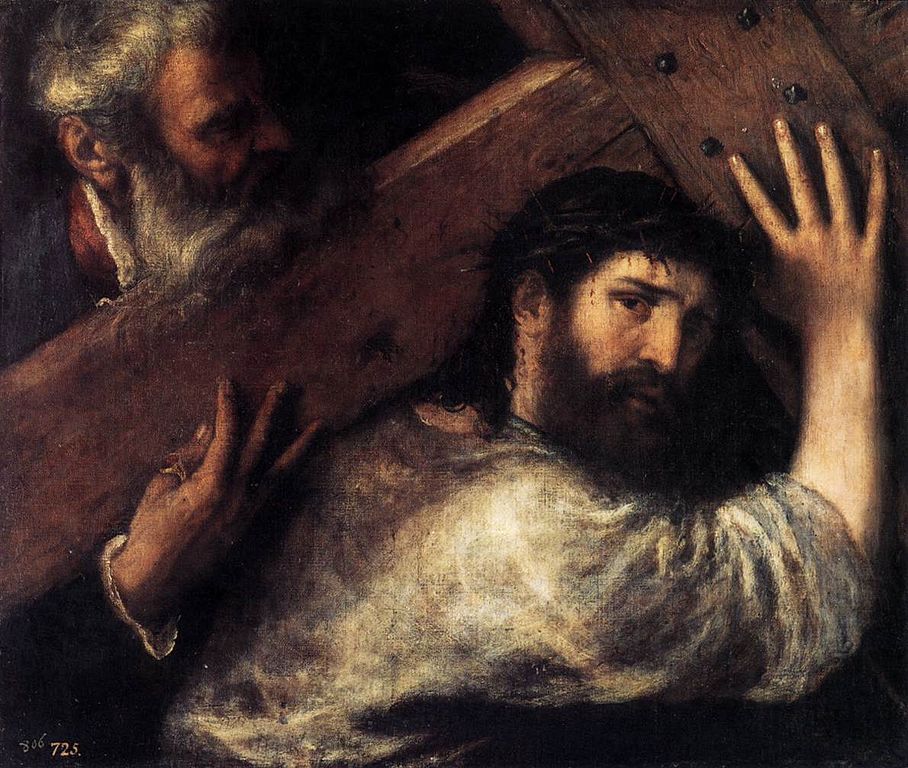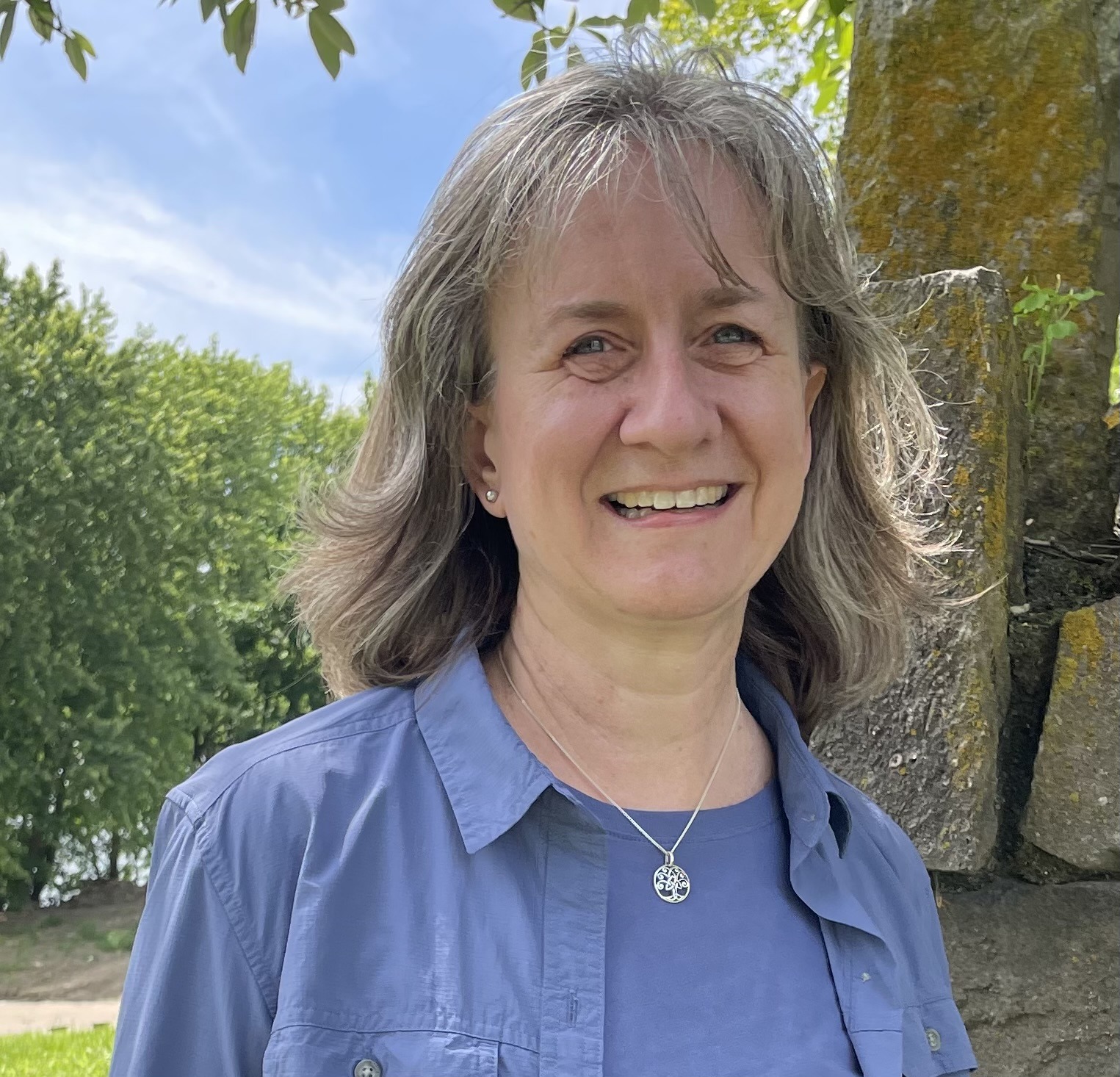
During Lent, ESN writer and InterVarsity graduate/faculty staff member Jamie Noyd shares her reflections. She invites us to meditate with her on six of the stations of the cross on which Christians have reflected over the centuries. See the post for the first Sunday of Lent here, the Second Sunday of Lent here, and the third Sunday of Lent here. You can explore Jamie’s other work for ESN, on the book of Ruth and the idea of pilgrimage, here.
Mark 15:21
A certain man from Cyrene, Simon, the father of Alexander and Rufus, was passing by on his way in from the country, and they forced him to carry the cross.
After being flogged, Jesus starts his final journey to the crucifixion site. Imagine being in the crowds watching on the side of the road as he comes stumbling along the way, barely able to walk, let alone carry the weight of the cross. All of a sudden a Roman guard conscripts Simon of Cyrene, a member of the crowd standing next to you. This man had asked you what was happening because he had just come in from the country. Now he is an intimate part of this drama—carrying the means by which another man will die.
A new story begins for this man. His life is forever changed.
Our paths are often waylaid by others. This can be as simple as a colleague coming to our office door to share about the family conflict that happened over the weekend or as major as a parent being diagnosed with cancer. In both instances, we are asked to help carry a part of someone’s burden.
Sometimes we do it willingly, while at other times we are reluctant and may even close the door. We stop answering calls or texts. We make excuses for not going out to coffee with a friend. We pull back to create a route safe from intrusions so we can get on with the important work in our lives. But what are we missing? It could be that these so-called burdens are the truly important work.
At times we are the ones carrying the cross. We may be reluctant to ask for help, not wanting to bother anyone. Maybe all we see are the crowds around us and can’t picture anyone willing to step into a crisis we have made ourselves. From this side of the picture we can also be missing something essential to life.
Working together to carry one another’s crosses brings us into deeper relationships and community. It brings us to places where we are serving as God’s hands and feet, and allowing others to do the same for us.
It’s likely that we will get dirty doing this work. It’s likely that our original plans will need to change. Yet, the life that comes from this mess is rich. Who knows if Jesus said anything to Simon that day? Perhaps he merely shared a deep look of compassion and gratitude. What we do know is that Simon’s life changed as he became a part of Jesus’ story that has been passed down for 2000 years.
Whose cross will you step in to help carry? Even if you, like Simon, are conscripted into this work, how can you look at it anew? Or, are you the one who needs to ask someone to help with a cross that you are carrying?
It may be time to take a risk and have your life changed, as did that certain man during a short stop in town.
Jesus, help us walk in your steps. Amen.

Jamie serves with InterVarsity Graduate and Faculty Ministries as an Associate Director of Faculty Ministry and as Director of the Emerging Scholars Network. Among other things, in this work she enjoys the opportunity to put into practice her doctoral research in literary pilgrimage and training in spiritual direction. She also ministers with the local faculty community at the University of Cincinnati.

Leave a Reply